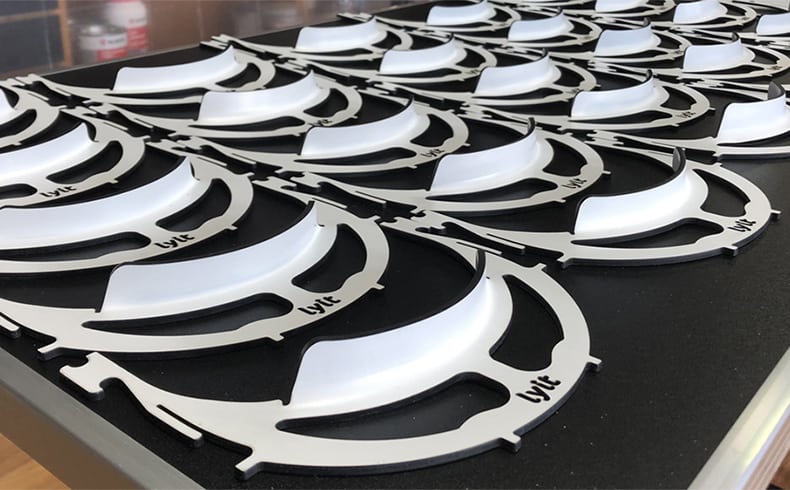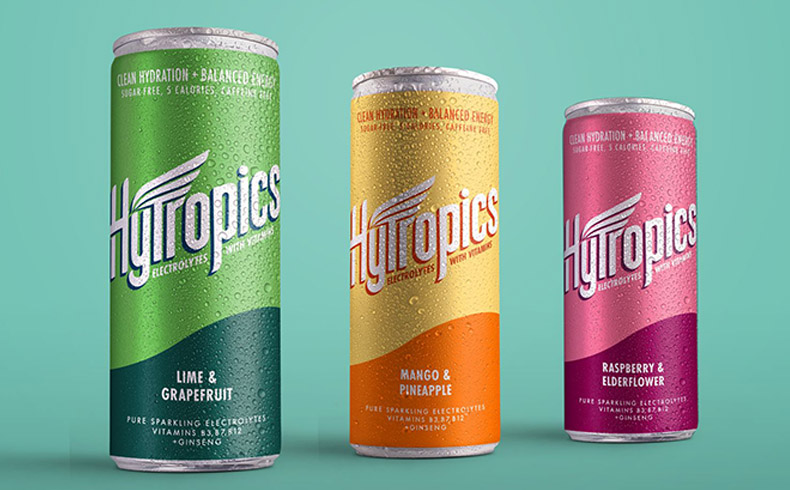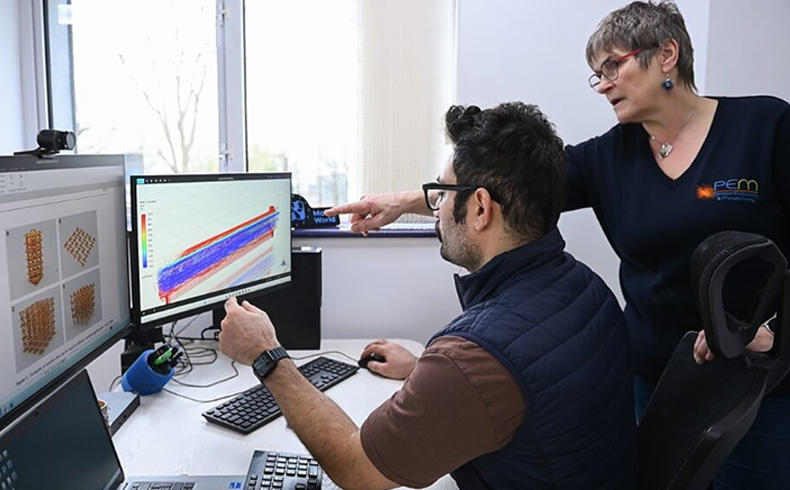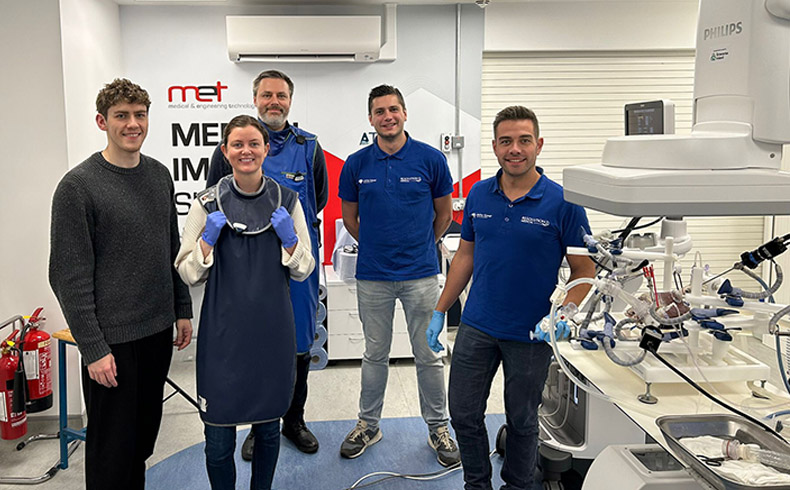In March 2020, at the very beginning of the impact awareness that COVID-19 would have on Ireland, the WiSAR Technology Gateway was contacted by a consultant anaesthetist in Letterkenny University Hospital, Dr Erik Korba who was concerned about a shortage of PPE used by healthcare staff caring for Covid-19 patients. He had discovered an open source visor design known as the RC3 which was developed by Czech 3D printing company, Prusa. WiSAR worked together with engineers from the Dept. of Electronic and Mechanical Engineering to confirm the design feasibility against other such designs with Dr Korba and his team and immediately went into production.
Anticipating the shutdown of the LYIT Campus, they set up a 3D printing facility in a business premises in Donegal Town which was vacant due to the restrictions and transferred production. LYIT’s engineers collaborated with a group of local secondary school teachers and private individuals who had access to 3D printing to coordinate a massive production effort across the county. This combined effort meant that they were able to deliver 520 RC3 face shields within the first week of production, with over 2,000 units of the design manufactured and delivered to the hospital and other healthcare facilities in Donegal by the end of April.
However, the 3D printed RC3 represented a significant bottleneck in the manufacturing process with each 3D printed piece having a 4-hour print time to ensure the required quality and strength. Additionally, the porous nature of the 3D printed RC3 made sanitisation very difficult and consequently could only be used once in a health care environment before disposal.
Chris Roulston and Johnny Morrow from the Dept. of Electronic and Mechanical Engineering set about optimising a design to eliminate the material intensive and time-consuming 3D printing process. The LC1 face shield developed by engineers at LYIT transforms a 2D laser cut flat pattern from modified laminated acrylic to a 3D part using a thermoforming process. The thermoforming process, the most significant manufacturing process for the new LC1 design can be completed at a rate of 1 unit every 4 minutes, meaning that the manufacturing could be increased tenfold satisfying the unprecedented amount of requests received for the PPE.
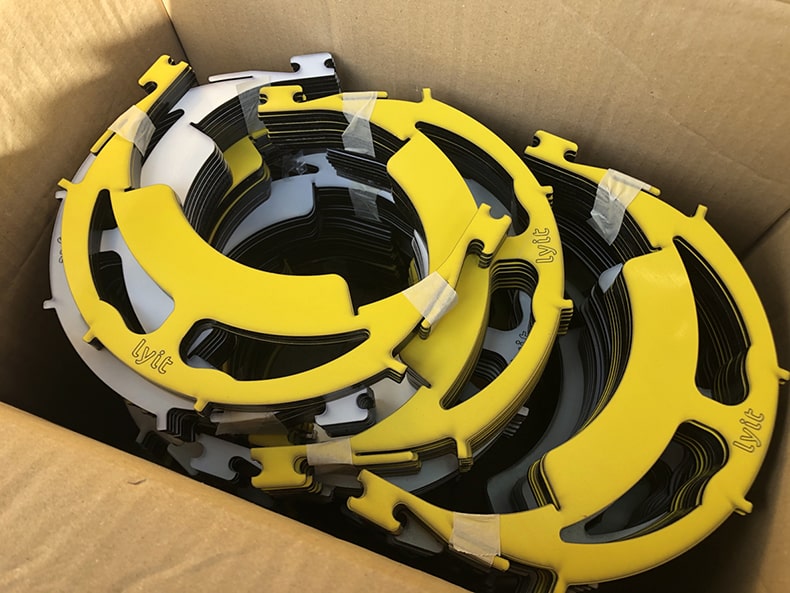
Furthermore, the new design is reusable as the new material can be sanitised. It retains the same geometric features as the original, this ensures comfort for the user and ensures that other component parts including the transparent face shield are interchangeable.
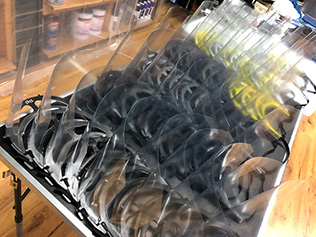
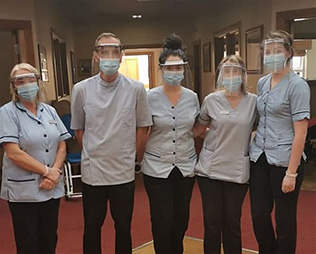
The team collaborated with local companies for the initiative, including; The Veneerist and Soniphorm who volunteered their laser cutting facilities and both whose studios are located in Donegal, CSI Manufacturing Ltd, Dublin, who supplied the material, Morna’s Patch, Donegal Town, who supplied the elastic head bands and Rory’s Auto Spares, Donegal Town, who provided the business premises. As a result of this collaborative effort they have been able to supply much needed face shields for free to healthcare professionals in numerous settings both locally and nationally. Currently, there is capacity among the current group to produce 120 face-shields per day.
John Andy Bonar, VP of Research, Equality and External Affairs at LYIT commented, “It was a privilege to be able to contribute in some way to the fight against this pandemic. I am proud of the initiative, creativity and terrific team effort made by the Department of Electronics and Mechanical Engineering under the leadership of Dr Jim Morrison during the lockdown period. I hope that the LC1 design can be made open source so that others nationally and internationally can benefit from it.”
